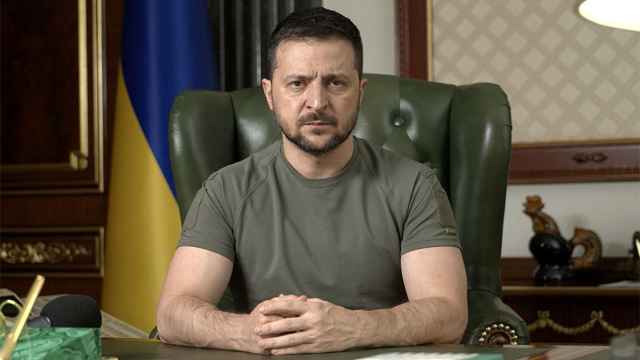Columnists consider it a major stroke of luck when an important political event occurs on a Thursday. That gives them the opportunity to discuss it with colleagues and friends during their habitual Friday night jaunts to the local pub.
Last Friday, the conversation quickly focused on Mikhail Prokhorov’s decision to resign as chairman of the Right Cause party.
“Well, what do you think about all this?” one colleague asked me.
“I think he was either too independent for the Kremlin,” I said, “or else the liberal authorities have not forgiven him for switching to the socialist positions he outlined in his manifesto — although it’s difficult to imagine liberals being offended by a billionaire.”
My friend was not convinced. “What if this is all just a tricky ploy to discredit the Kremlin’s first deputy chief of staff Vladislav Surkov?” he suggested.
“Too complicated,” I said.
When asked what I thought about Prokhorov, a businessman replied: “I don’t like him, but I was planning to vote for him anyway. Now that he’s out of the race, I don’t plan to vote at all.”
The bartender joined our discussion. “I’m not interested in politics,” she said. “I voted for Yeltsin during the very first elections, but I haven’t voted since to avoid making another mistake.” And despite her disclaimer, she quickly warmed to the topic. “It’s obvious the Kremlin had planned his resignation in advance.”
She then drew our attention to the television where the usual crime show had been pre-empted by an NTV “documentary” showing what a terrible person controversial anti-drug campaigner Yevgeny Roizman is.
A midlevel PR manager for a major oil company joined us, and I asked him what he thought about the Prokhorov imbroglio.
“Either Prokhorov shared too little of his money with the Kremlin, or else he thought he brought so much to it that he could get away with anything,” he said.
If journalists and nonjournalists had any common views regarding the situation with Prokhorov, it was that everyone saw it as a farce orchestrated by the authorities and thought it funny to see how the government was trying to prove otherwise.
The problem is that when people start laughing at the authorities, it is a bad sign not only for the government itself but also for those of us who dream about stability.
Alexei Pankin is the editor of WAN-IFRA-GIPP Magazine for publishing business professionals.
A Message from The Moscow Times:
Dear readers,
We are facing unprecedented challenges. Russia's Prosecutor General's Office has designated The Moscow Times as an "undesirable" organization, criminalizing our work and putting our staff at risk of prosecution. This follows our earlier unjust labeling as a "foreign agent."
These actions are direct attempts to silence independent journalism in Russia. The authorities claim our work "discredits the decisions of the Russian leadership." We see things differently: we strive to provide accurate, unbiased reporting on Russia.
We, the journalists of The Moscow Times, refuse to be silenced. But to continue our work, we need your help.
Your support, no matter how small, makes a world of difference. If you can, please support us monthly starting from just $2. It's quick to set up, and every contribution makes a significant impact.
By supporting The Moscow Times, you're defending open, independent journalism in the face of repression. Thank you for standing with us.
Remind me later.





